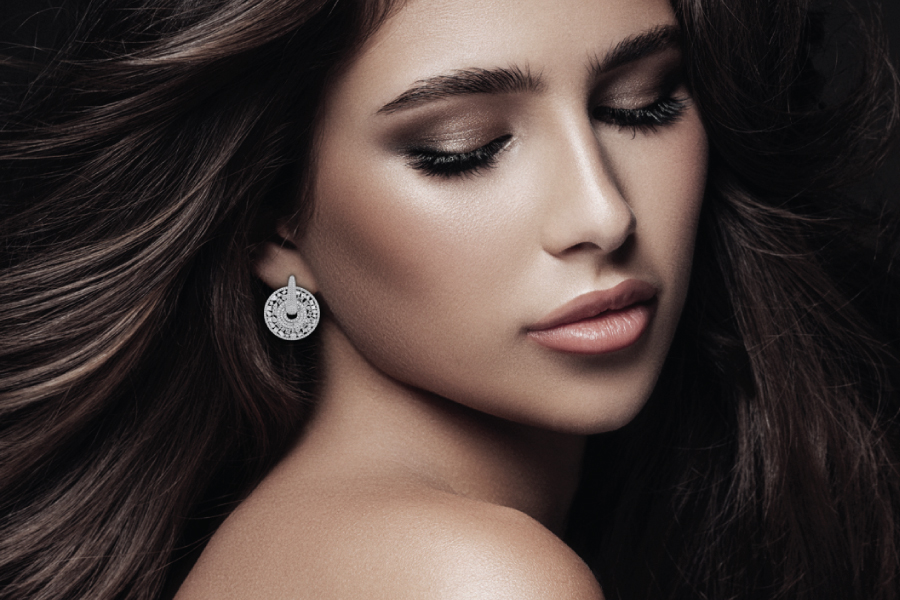Diamond earrings cleaning at Home
Jewellery is an investment, but you should be diligent about caring for it so that it lasts a lifetime. Over time, the diamond in your earrings may become dull. A professional jeweller can clean your jewellery at a reasonable price. There are methods of cleaning your earrings as a simple process that can be completed at home.
Types of equipment needed for cleaning Diamonds
There are various equipment that you can use to clean your diamonds at home, from cleaning solutions from varying brands, chemical treatments, machines, and even some found in amazon.
These are the most commonly used:
Jewellery Cleaning Kit
If your bling has lost its lustre, use an at-home jewellery cleaning kit to bring it back to life. Look for one that can remove tarnish, filth, and oils from a wide range of jewels and metals with simply a soak in a non-toxic solution and gentle polishing with soft cloths.
It's also a good idea to double-check all of your jewellery cleaning kits for information on what they're safe for and how to use them. Although many are non-abrasive and will restore lustre without causing damage to your precious metals and gems, you should still make sure that they are suitable for your precious metals and stones.
Ultrasonic jewellery Cleaners
An ultrasonic jewellery cleaning is a quick and easy way to spruce up your jewellery. All that is required in the case of this machine is water! Ultrasonic jewellery Cleaner uses sound waves with a frequency of 42,000 Hz to create a large number of small bubbles in the water. The heavy lifting of eliminating soap, grime, and debris from your jewellery is done by these bubbles. It's safe to use on both gold and silver jewellery, although it won't be able to remove major corrosion from silver.
While these machines do a good job of cleaning jewellery, they also have drawbacks as they have the potential to damage it. When these machines vibrate, the prongs on your jewellery may loosen, putting you at danger of losing a stone. So, while ultrasonic jewellery cleaners may effectively clean your jewellery, we advise against using them since you risk destroying it. These machines, in our opinion, are simply not worth the danger.

Stunning diamond earrings
Tools and cleaning agents for cleaning earrings found at home
To begin cleaning our lovely diamond earrings, find a toothbrush (you can also use a specialty brush or any small, finely haired brush) and use a gentle grinding motion to remove grime and dirt. Keep in mind that if you use a rough brush, the settings may be harmed. We highly advocate using a child's brush rather than an adult's brush on diamond earrings since it will be softer.
After that, polish and dry the studs with a soft towel. You can use a specific jewellery cleaning cloth, a microfiber cloth, or just a good old rag for this. Because there is a little possibility of any thread being stuck on your jewellery, microfiber cloths are very useful in this circumstance. If you're going to use a cloth, make sure it's made of tightly woven, absorbent fabric.
You can clean your valuable stones with a variety of cleaning chemicals, but these are the most typically utilised:
Dish Soap: Combine a few drops of any dishwashing liquid with warm water. To remove tarnish, dip a delicate cloth into the solution and rub your earrings. Rinse with cool water and dry with your microfiber cloth when finished.
Bicarbonate of Soda: Make a thick mixture with water and bicarbonate of soda and apply it to the earrings. Allow for ten minutes of application before rinsing and removing filth and grime with a toothbrush.
Hydrogen Peroxide: Carefully pour hydrogen peroxide into a basin and immerse the earrings for ten minutes. Rinse well and pat dry with a microfiber cloth.
Ammonia: ¼ cup warm water, 2 teaspoon ammonia 1 tbsp. liquid soap and 1 tbsp. Be cautious of ammonia fumes. Apply a small amount of the solution to a soft cloth and gently touch the earrings to remove the tarnish. If necessary, soak the jewellery for 30 minutes in the solution. Remove the earrings and use a microfiber cloth to gently remove tarnish from the toothbrush's head.
Many common household cleaning products, such as glass cleaners, window cleaners, and any cleaner containing bleach, contain strong chemicals that can easily destroy jewellery. To avoid accidentally damaging your jewellery, we recommend that you avoid using any harsh chemical products or abrasive materials when cleaning it.
STEP-BY-STEP INSTRUCTIONS TO CLEAN YOUR DIAMOND EARRINGS
Step number 1: Make sure you have everything you'll need for cleaning your earrings and that you're in a secure location.
Step number 2: Make a warm water and soap solution in a bowl to begin. The greatest soap option for your solution is regular dish soap. Use dish soap that is free of bleach, which can damage jewellery, and hydrating chemicals, which can leave a film on your jewellery or if you have a specific cleaning solution for your jewellery then it is better to use it.
Step number 3: Immerse your earrings completely and set aside for at least 10 minutes (unless instructed otherwise).
Step number 4: Take off your earrings and begin brushing with your toothbrush.
Step number 5: You can re-immerse your earrings in the solution if necessary.
Step number 6: Rinse your earrings thoroughly in warm water once they're clean. You should not rinse them in the sink because you risk losing them down the drain.
Step number 7: Dry and polish them for added glitz, then store them safely until they're needed.
If you feel like your jewellery still appears to be dirty, simply repeat the steps.
Do you know how often you should use this procedure to clean your diamond jewellery? We recommend cleaning regularly worn jewels at home once a month, such as everyday diamond studs or an engagement ring. Then, anytime you think your jewellery is starting to look dull or dim, use this approach for less frequently worn pieces.
Additionally, you may want to store your diamond jewellery in a different location (or in a different container) than your other jewellery. Diamonds are extremely hard, making them extremely long-lasting. The hardness of a diamond, on the other hand, means that it may scratch valuable metals or other gemstones in your jewellery box. We strongly advise against placing diamond jewellery next to pearl or opal jewellery, as these gemstones are extremely sensitive. Consider putting more delicate jewellery in a soft cloth pouch or a cloth-lined box apart from your diamond jewellery.
We recommend that you be cautious when practising your bedtime routine to avoid losing or damaging your diamond jewellery.
Remember to take off all jewellery, including diamond jewellery, before going to bed. We understand that many individuals believe it is acceptable to sleep with their diamond studs or engagement ring on because they are not uncomfortable and diamonds are quite durable. Your diamond studs' and engagement ring's settings, on the other hand, can be damaged if you wear them to bed. While diamonds are unlikely to be harmed while sleeping, precious metals are a different matter. When you put pressure on precious metals while sleeping, you risk damaging the settings of your jewellery, loosening prongs, or bending earring posts and backings.
When removing your jewellery at night, keep in mind that you should not do it over a sink (or any type of drain). As they get ready for bed, many people remove their jewellery in the restroom. However, we recommend avoiding this and instead removing your jewellery far away from sinks and bathtubs, as a diamond stud or ring can easily fall into a drain.

Stunning diamond earrings
FAQs
How often should diamond earrings be cleaned?
We recommend cleaning regularly worn jewels at home once a month, such as everyday diamond studs or an engagement ring.
What kind of cleaning agents may you use?
When you are at home the best cleaning agents you may use are dish soap, toothpaste( contains sodium bicarbonate), hydrogen peroxide, and ammonia.






